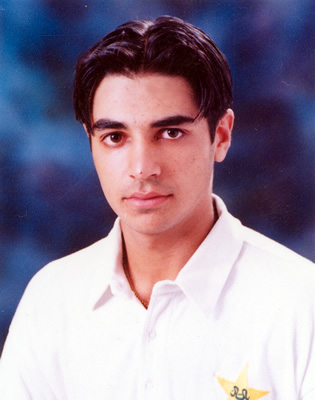(Reuters) – The international cricket careers of former Pakistan captain Salman Butt and pace bowler Mohammad Asif appeared over after they lost their appeals against spot-fixing bans at the Court of Arbitration for Sport (CAS) today.
“The players appealed to the CAS individually and their cases were handled separately but referred to the same panel of arbitrators…,” the CAS said in a statement.
Butt, 28, and team mates Asif and Mohammad Amir were banned by an International Cricket Council (ICC) tribunal in 2011 for their roles in spot-fixing in the Lord’s Test against England in 2010.
Butt, the orchestrator of a plot to bowl deliberate no-balls, was banned for 10 years, with five of those suspended.

Paceman Asif was banned for seven years, two of those suspended. Amir, who was given a five-year ban, did not appeal to CAS.
A London crown court handed the trio jail terms for corruption and cheating.
Asif’s appeal against the ban was mainly on procedural grounds but the 30-year-old paceman failed to convince the three-member CAS panel that he was innocent of any wrongdoing.
“The panel was satisfied beyond reasonable doubt that Mr Asif was a was party to the spot-fixing conspiracy,” the statement said.
Butt, who played 33 tests for Pakistan, did not contest the findings of the ICC tribunal and only requested for a lesser sanction.
“The CAS Panel was not persuaded that the sanction imposed by the ICC Tribunal was disproportionate…,” the statement added.
Butt’s lawyers said they would explore “other avenues” to appeal his case but the player told reporters he accepted the CAS’s decision.
“What is done is done. I have already served the ban for two years and eight months and will now wait patiently for the next two years and four months to try to make a return to cricket,” he said in his home town of Lahore.
“I am determined to make a comeback to cricket when this ban ends. I made the appeal to the CAS because that was the only option available to me to prove my innocence.”
ICC chief executive David Richardson hailed the verdict by CAS.
“The ICC notes and welcomes the decisions of the CAS as they vindicate and confirm the processes and procedures followed by the ICC over the past couple of years in respect of this important, sensitive and high-profile matter,” Richardson said in a statement.
“The decisions strengthen our resolve to always remain vigilant and keep the game clean at all cost, while continuing to educate the players about the threats and ways to combat the challenges faced by our sport.”
